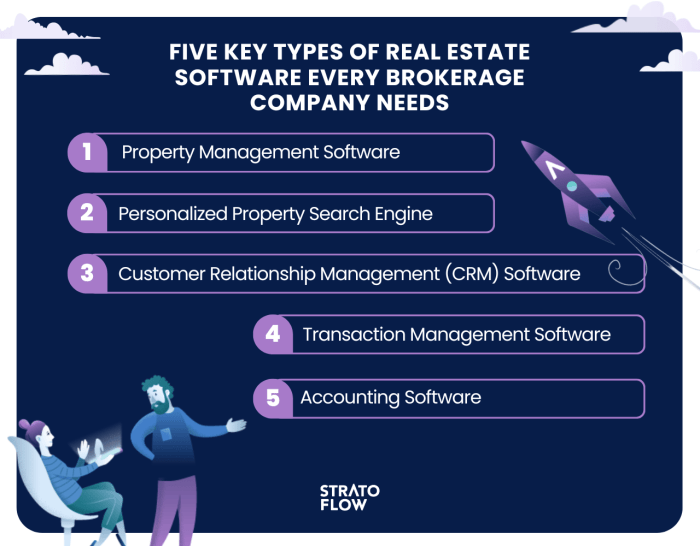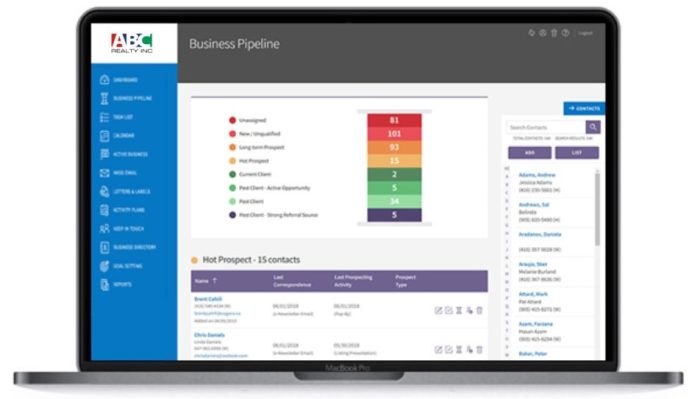The real estate industry is dynamic and competitive. To thrive, brokers need more than just a network of contacts; they need a robust system to manage leads, nurture relationships, and streamline operations. This is where Real Estate Broker CRM software steps in, offering a powerful solution to manage every aspect of your business, from lead generation to closing deals.
This comprehensive guide will delve into the world of real estate CRM software, exploring its features, benefits, and how to choose the right solution for your specific needs.
Understanding the Power of Real Estate CRM Software
A Customer Relationship Management (CRM) system specifically designed for real estate brokers is a centralized hub for all your client and business data. It goes beyond simple contact management, providing tools to automate tasks, track progress, and analyze performance. Think of it as your digital command center, empowering you to manage your business more efficiently and effectively.

Source: surferseo.art
Key Features of Effective Real Estate CRM Software, Real estate broker crm software
- Lead Management: Capture leads from various sources (website forms, open houses, referrals) and automatically assign them to agents. Effective lead scoring and prioritization features are crucial.
- Contact Management: Store comprehensive client information, including contact details, transaction history, communication logs, and property preferences. Robust search and filtering capabilities are essential for quick access.
- Communication Management: Integrate email marketing, SMS messaging, and even social media to nurture leads and maintain client relationships. Automated email sequences and drip campaigns can significantly improve engagement.
- Transaction Management: Track the progress of each deal, from initial contact to closing. This includes managing documents, deadlines, and communication with all parties involved.
- Marketing Automation: Automate repetitive tasks like email marketing, social media posting, and lead nurturing, freeing up your time to focus on building relationships and closing deals.
- Reporting and Analytics: Gain valuable insights into your business performance with detailed reports on lead conversion rates, sales performance, and marketing ROI. This data-driven approach allows for strategic decision-making.
- Team Collaboration: Facilitate seamless communication and collaboration among team members, ensuring everyone is on the same page and working towards common goals. Shared calendars and task assignments are critical features.
- Integration with other tools: Seamless integration with other essential real estate tools, such as IDX websites, MLS systems, and e-signature platforms, is crucial for a streamlined workflow.
- Mobile Accessibility: Access your CRM from anywhere, anytime, using a mobile app. This allows for immediate responsiveness to client inquiries and updates.
Benefits of Implementing a Real Estate CRM
Investing in a real estate CRM offers numerous benefits that can significantly impact your business’s bottom line:
- Improved Lead Conversion Rates: By effectively managing and nurturing leads, you can significantly increase your conversion rates and close more deals.
- Increased Productivity and Efficiency: Automation of tasks frees up your time to focus on high-value activities, such as building relationships and closing deals.
- Enhanced Client Relationships: Personalized communication and timely follow-ups strengthen client relationships and foster loyalty.
- Better Organization and Data Management: Centralized data storage and easy access to client information improve organization and reduce errors.
- Data-Driven Decision Making: Detailed reports and analytics provide valuable insights into your business performance, allowing for informed decision-making.
- Improved Team Collaboration: Streamlined communication and collaboration among team members improve efficiency and productivity.
- Scalability and Growth: A robust CRM can easily scale to accommodate your business’s growth and changing needs.
Choosing the Right Real Estate CRM Software
Selecting the right CRM is crucial. Consider these factors:
- Your budget: CRMs range in price from free options to expensive enterprise solutions. Choose one that fits your budget and anticipated needs.
- Your team size: The CRM should be able to accommodate your current team size and have the capacity to scale as your team grows.
- Your specific needs: Consider the features that are most important to your business, such as lead management, transaction management, or marketing automation.
- Ease of use: The CRM should be intuitive and easy to use for all members of your team.
- Integration capabilities: Ensure the CRM integrates seamlessly with other tools you use, such as your MLS system and website.
- Customer support: Choose a CRM provider that offers excellent customer support and readily available documentation.
Top Real Estate CRM Software Options (Examples – Specific product names should be researched for current market offerings)
The market offers a wide array of options. Research and compare features, pricing, and user reviews before making a decision. Some popular options (always check for the most up-to-date information) include cloud-based solutions and those with on-premise options. Look for features like robust reporting dashboards, lead scoring capabilities, and mobile app accessibility.
Frequently Asked Questions (FAQs)
- Q: Is a real estate CRM worth the investment? A: Absolutely. The improved efficiency, lead conversion rates, and client relationship management capabilities significantly outweigh the cost.
- Q: How much does real estate CRM software cost? A: Prices vary greatly depending on features, scalability, and vendor. Expect to find options ranging from free plans with limited functionality to enterprise-level solutions with substantial monthly or annual fees.
- Q: How long does it take to implement a real estate CRM? A: Implementation time depends on the complexity of the CRM and your team’s familiarity with the system. Expect anywhere from a few days to several weeks.
- Q: Can I integrate my existing systems with a real estate CRM? A: Many CRMs offer integration with popular real estate tools, such as MLS systems and IDX websites. Check the CRM’s specifications to ensure compatibility.
- Q: What if I need training on using the CRM? A: Most reputable CRM providers offer training resources, including tutorials, webinars, and dedicated customer support. Some may offer personalized onboarding assistance.
- Q: What are the key performance indicators (KPIs) to track in a real estate CRM? A: Key KPIs include lead conversion rates, average deal size, sales cycle length, customer acquisition cost, and marketing ROI.
Conclusion: Real Estate Broker Crm Software
Investing in the right real estate broker CRM software is a strategic move that can significantly enhance your business’s performance and propel your success. By streamlining operations, improving client relationships, and providing valuable data-driven insights, a well-chosen CRM becomes an invaluable asset in today’s competitive real estate market. Take the time to research your options and choose a solution that aligns with your specific needs and budget.
Call to Action
Ready to transform your real estate business? Explore the leading CRM options available today and schedule a demo to see how a powerful CRM can help you achieve your goals. Don’t let your competitors leave you behind – embrace the power of technology and take your business to the next level!

Source: inveloapp.com
FAQ Guide
What are the key features to look for in a real estate CRM?
Essential features include contact management, lead tracking, deal management, communication tools (email, SMS), reporting and analytics, and integration with other real estate platforms.
How much does real estate CRM software typically cost?
Pricing varies widely depending on features, user numbers, and provider. Expect to find options ranging from affordable monthly subscriptions to more comprehensive enterprise-level solutions.
Is CRM software difficult to learn and use?

Source: ixactcontact.com
Most modern CRMs are designed with user-friendliness in mind. Many offer intuitive interfaces and comprehensive training resources to facilitate a smooth onboarding process.
Can a CRM integrate with my existing marketing tools?
Many CRMs offer seamless integration with popular marketing automation platforms and other business tools, enhancing workflow efficiency.
What kind of data security measures should I expect?
Reputable CRM providers prioritize data security with measures like encryption, access controls, and regular security audits to protect sensitive client information.
